British musher Vickie Pullin and dream sled dog team close to fetching world glory
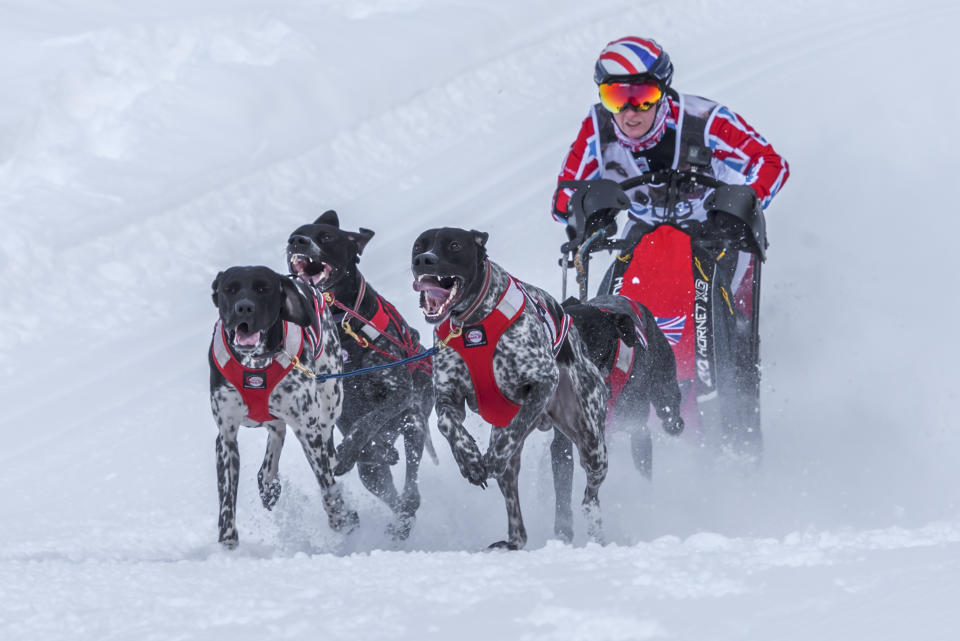
By Rachel Steinberg
A log cabin sits at the heart of the idyllic Gloucestershire property where 12 of Britain’s top sprinters live. There is a hydrotherapy tank next door for resistance training and rehabilitation, and the on-site menu offers performance-ready, protein-packed meals for its clientele.
Most of the elite athletes who live there are huskies, but greysters and hounds are among the 34 dogs who call the place home.
The lone human in the mix, Vickie Pullin, 35, might be the most successful British athlete whose name you’ve never heard.
Pullin was once touted as a potential Team GB snowboarder for the Vancouver Olympics in 2010. A decade later, she’s donning the Union Jack in an entirely different sport: sled dog racing.
The Tewkesbury native is the country’s best female musher. This year, Pullin became the first athlete to claim four British Sleddog Sports Federation (BSSF) championship titles in a single season. She’s staged a meteoric international rise since her first race in 2013 and finally believes she has the experience—and her ‘dream team’ of canine competitors—to become a world champion.
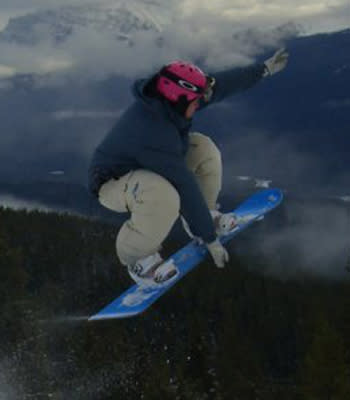


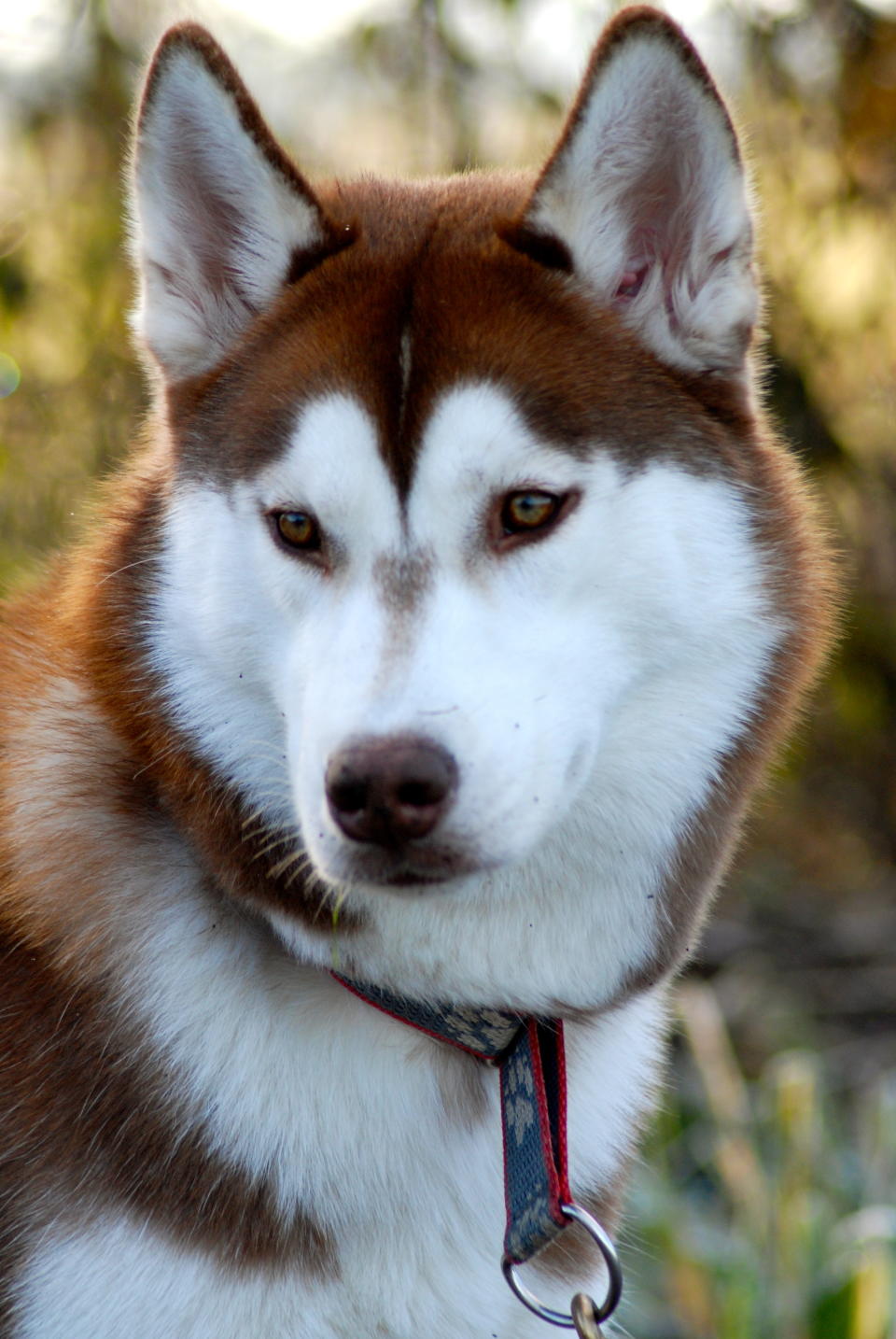
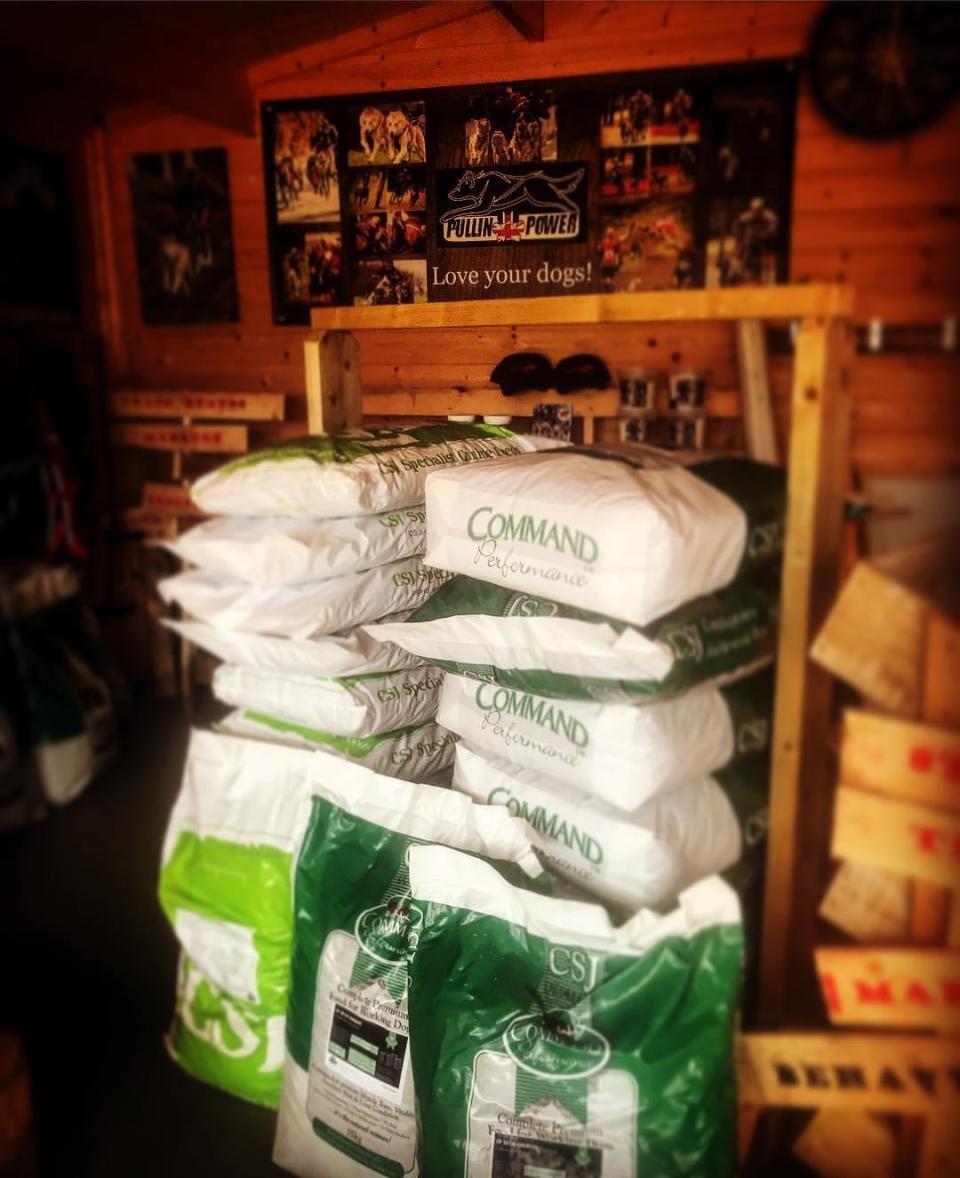
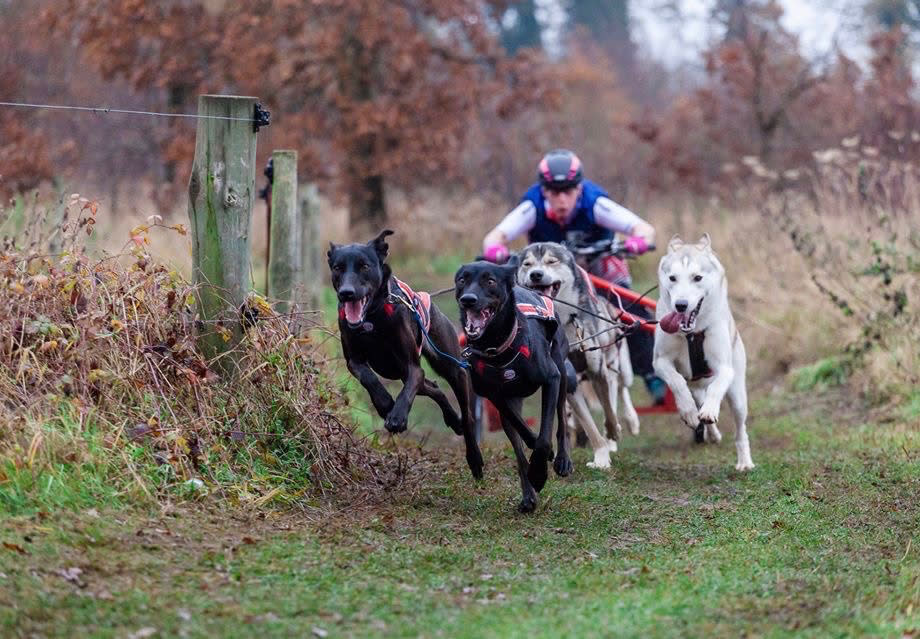

Global glory wasn’t on Pullin’s radar in 2015 when she entered her first international snow event, the International Federation of Sled Dog Sports (IFSS) World Championships in Germany. She placed dead last in the four-dog sled sprint, crossing the Black Forest finish line nearly five minutes behind the second-slowest racer.
Pullin said: “I felt like Europe were very much like, ‘Thanks for coming, Jamaican bobsleigh team!’
“But every year we’ve raced I’ve gone higher and higher. We’re doing something right. Now we’re a threat. People are talking about us.
“We have lots of friends. People don’t laugh at me.”
While mushing conjures up images of burly huskies dashing across the Alaskan tundra, IFSS stages dryland and snow races open to any breed fit to compete. The racing calendar runs from June to May, alternating between world and continental championship years.
Dryland races include canicross—cross-country running with dogs—and bikejoring, where canines and cyclists work in tandem. Other events are run on specialised scooters and three-wheeled rigs. Pullin competes in most disciplines.
Winter competitions feature sled sprints from 5 to 24km, a 42km mid-distance race, and skijoring, in which dogs on leads run ahead of their skiing counterparts.
In February, Europe’s top sled dogs and their humans arrived in the tiny Swedish town of Åsarna for the 2020 European snow championships.
The podium results read like a list of Christmas holiday jaunts: Finland, Sweden and the Czech Republic. Norwegians claimed gold in 13 of the 26 races and their pups were honoured in a traditional ‘bone ceremony’.
But nestled in the top-tens, amongst those citizens of much colder climes, was a British interloper.
Pullin, who averages just a week of on-snow training before a competition, finished eighth in three events, including two 9km four-dog sled sprints.
Less than 30 seconds separated Pullin from the bronze medallist in the two-dog 5km sprint, a race in which she also beat Pole Igor Tracz—a friend, mentor, and seven-time world champion.
Pullin said: “A guy in Britain once told me I’ll never win a medal on snow. Now I’ve won the Dutch national championships and the Italian national championships.
“To be top ten [in Europe] is something serious, especially when you’re standing there with all the Scandinavians.
“I’ll get my [world] medals someday. I know I will.”
There once was a woman / with 34 dogs / who lived in a cabin / made of fine logs
Pullin’s one collie, two Euro hounds, four Alaskan huskies, six greysters, and 21 Siberian huskies—including seven puppies—collectively consume 15kg of food each day.
The dozen dogs on her Pullin Power racing team average 22mph and come from champion lines in Scotland, Poland, Norway and France.
Most of the non-competing squad lead tours for Arctic Quest, Pullin’s full-time business offering husky experiences to curious visitors.
And while Pullin’s home life sounds like something out of a nursery rhyme—the Old Woman Who Lived in a Shoe for the canine set—her journey was far from a fairy tale.
Pullin started snowboarding on a sixth form school trip. Shortly after completing her A-levels, she moved to Canada to train, eyeing a snowboard cross spot on Team GB.
Ultimately, the lack of funding for snow sports in the UK meant Pullin couldn’t chase her Olympic dream.
She said: “It broke me at the time and my whole perspective of sport changed. It’s not necessarily the best in the world at the Olympics. It’s who can afford to go.
“And I couldn’t. I got angry and I got bitter at sport.
“I went into sports development for a year to try to change things but I realised I didn’t want to talk about athletes. I wanted to be the athlete.”
Pullin always wanted a husky. The silver lining to leaving the snowboarding circuit was named Willow—her first dog. She soon adopted three more and launched Arctic Quest in 2010, inspired by her first sled dog experience in the Canadian wilderness. Racing followed three years later.
Pullin said: “It pretty much matched the feeling of snowboarding for me.
“It’s the same rush I get today. You’re trusting an animal and they’re working for you. You feel in control but you’re not in control.
“It’s the partnership. It’s special.”
But Pullin, who can see the kennels from her bedroom window, acknowledged the sport isn’t for everyone.
She said: “It’s not like taking up cycling and deciding a year later you don’t want to do it.
“Every time you get a puppy it’s a 15-year commitment. It’s a lifestyle.
“The reality is it probably cost me my previous relationship.
"Where I live is dictated by this sport. Everything financially I put into my dogs so they can have the best life possible. It’s intense.
“I compete with them, but they’re my family first.”
Sled dogs peak between two and five, though Pullin aims to race hers much longer.
Willow passed away last year. Pullin was so heartbroken she nearly decided to pack it all in after her current team retires.
“But I very quickly realised there’s nothing else I want to do in the world, so I’m not going to stop—not yet anyway!” she said.
So Pullin bred the puppies, committing another 15 years to her “next generation”, and continues to graft, training six or seven days a week while working full-time. Many top racers from other countries—particularly in bikejor—receive government funding or were professional mountain bikers.
In greysters Luna, Maverick, Bo and Arrow, Pullin believes she has the fastest four-dog team in the world. She is determined to give them the best shot at crossing the finish line first at the next world championships—on snow in 2021 and dryland in 2023.
That means losing weight. In Åsarna, seven seconds separated Pullin from a former world champion who was 15kg lighter. She has lost nearly four stone since she started racing but hopes to shed more pounds to improve speed.
Pullin said: “My dogs have changed my life. They made me a better person and a healthier person.
“I’ve worked really hard to achieve this. I’ve got a goal, a dream. I want to be the best in the world at what I’d—”
“Aawwwwrrrarrrooo!” howled a teammate.
It was Dogspeak, roughly translated, for we're in this with you, Vickie. Let’s win it all.

 Yahoo Sport
Yahoo Sport 


































































